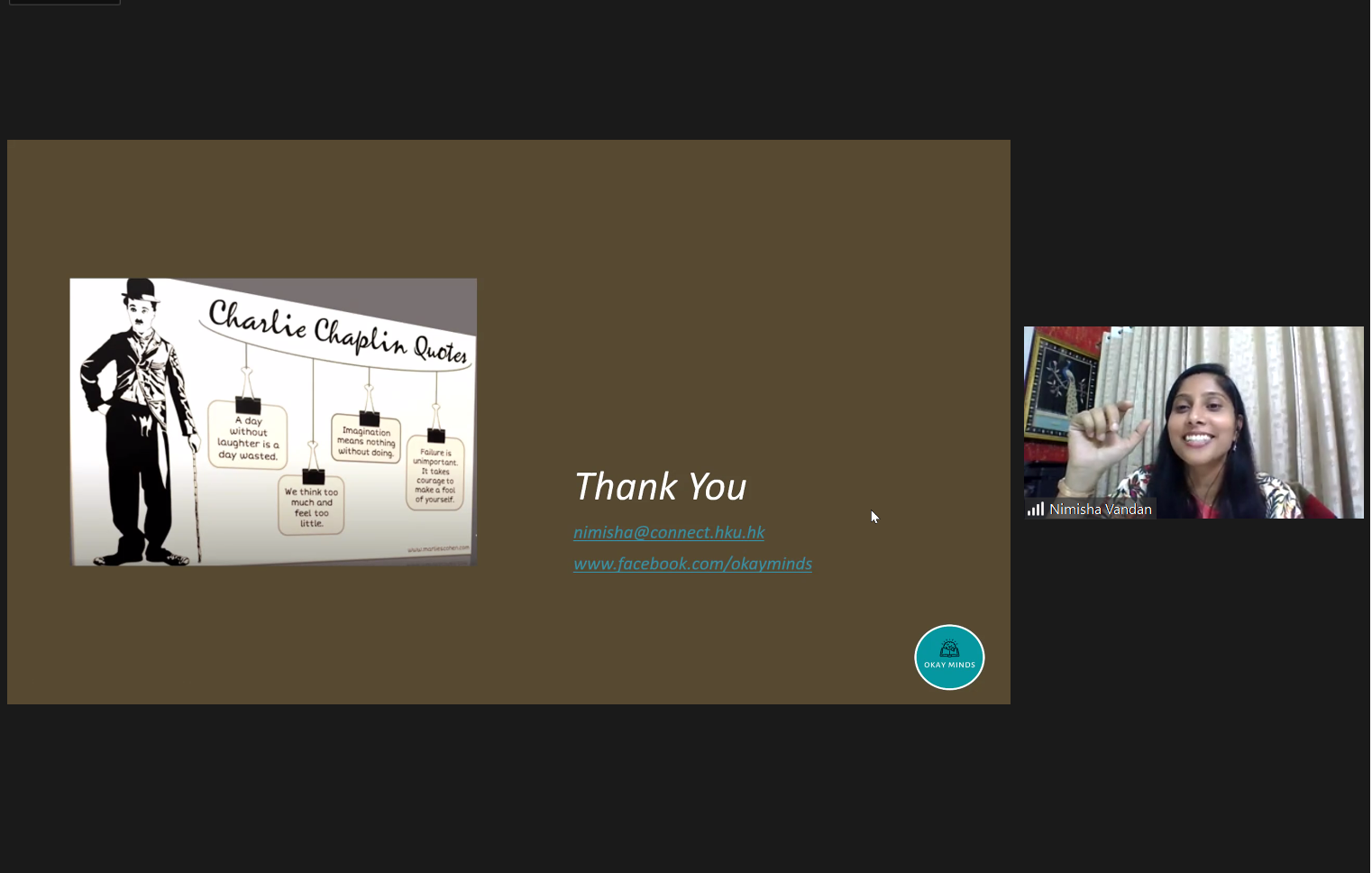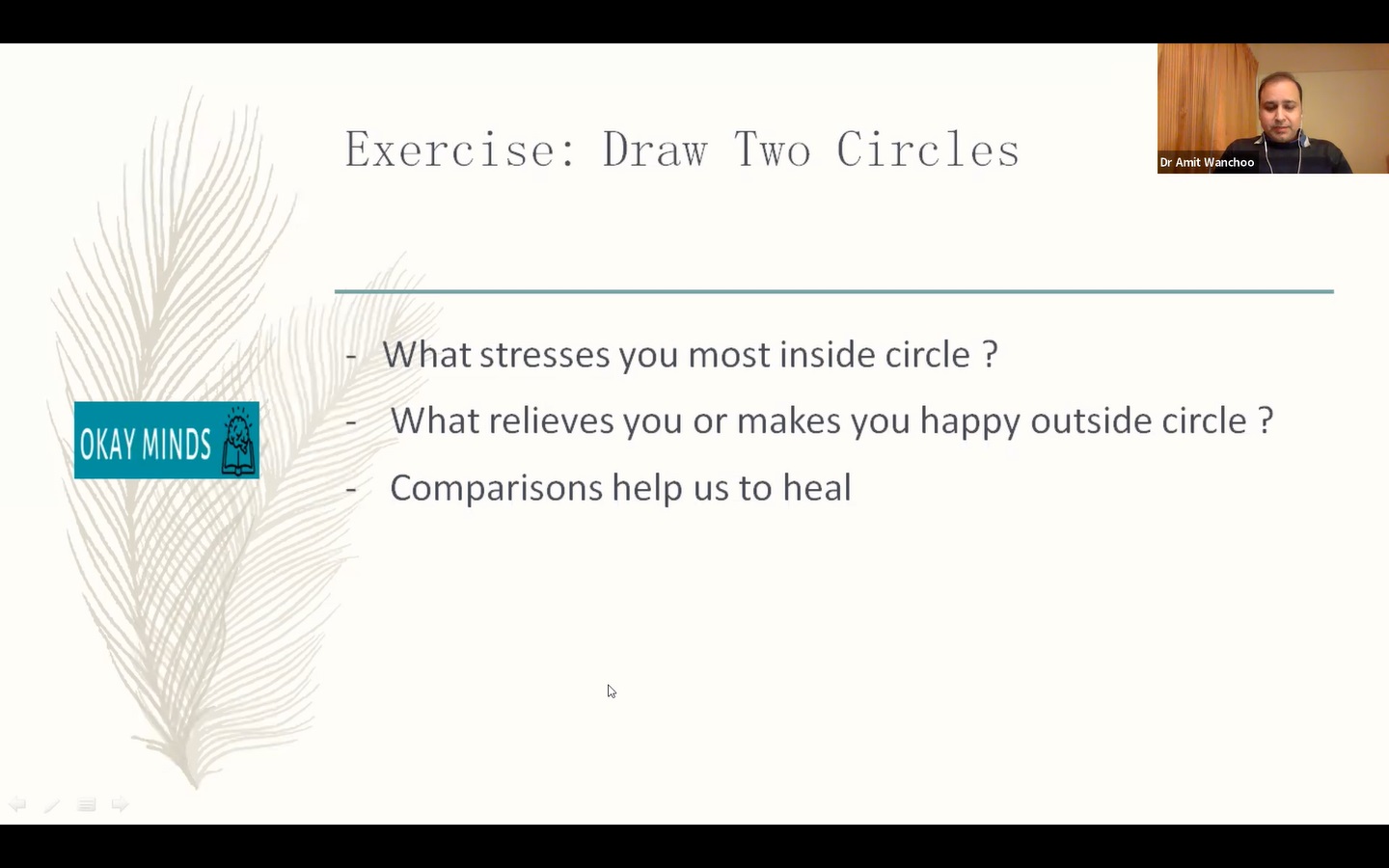

{{'Newsletter' | t}}
Mental Wellness Week for Research Postgraduate Students


March 7–11, 2022 marked the Graduate School Mental Wellness Week for research postgraduate students (RPgs) at HKU. During the week, five workshops were conducted by Dr Nimisha Vandan, our HKU alumnus, and Dr Amit Wanchoo, CEO of Space Communications and one of the 2018 HKU AsiaGlobal Fellows, both of whom are co-founders of OKAYMINDS. The workshops covered five essential aspects of mental wellness that are highly relevant to the study context of our RPgs: “Stress to strength”, “Attention please”, “You can do it”, “Power to empower”, and “Find a leader in you”.
The series started with the stress management workshop. Instead of getting worried, participating students were taught how stress can be converted into strength, which can subsequently be used to handle a situation constructively. The second workshop dealt with one of the most important assets for any student – the power of attention. By using this power effectively, students can see benefits in their personal and professional achievements. Participants were taught the skills for minimising random mind-wandering and procrastination, together with utilising time in the most appropriate way. The third workshop taught students various coping skills and methods for building mental resilience, also known as mental immunity, which can be used to face challenges and unpleasant events with little impact on physical and mental health.
The fourth workshop focussed on getting ready to overcome any inevitable rejections and/or failures in human life, especially considering research students’ vulnerability in the extremely competitive field of academic publication and funding. By cultivating a growth mindset, students can feel empowered to handle the rejections and failures. The fifth and final workshop was on finding a leader within oneself. As RPgs, recognising leadership skills and implementing them in day-to-day research work is of utmost importance. Once students are aware of the leadership skills, they will be able to exhibit these skills in their daily life and look beyond merely conducting research.
All of these skills support students in their learning process, helping them to learn how best to collaborate rather than compete with their lab mates or peers. Through interaction with the speakers, students started understanding and relating the purpose and meaning of their valuable research work with the problems in society. At the end of the workshops, students said they felt empowered and better equipped to contribute towards a bigger goal, i.e., to make this world a better place for everyone.
The two speakers – as researchers and experts in the field of mental health and wellness – educated, guided, and trained the participating students on various life challenges, and advised them on practical techniques to help deal with difficult situations. The RPgs showed great interest and involvement in sharing their views and experiences, and actively participated in various learning activities during the sessions, expressing that these workshops served as a unique platform to discuss their personal and research-related concerns and challenges.
The Graduate School would like to thank the two speakers for sharing their experiences and providing practical advice to help students develop a positive and productive mindset for personal and professional development.
